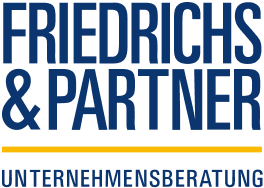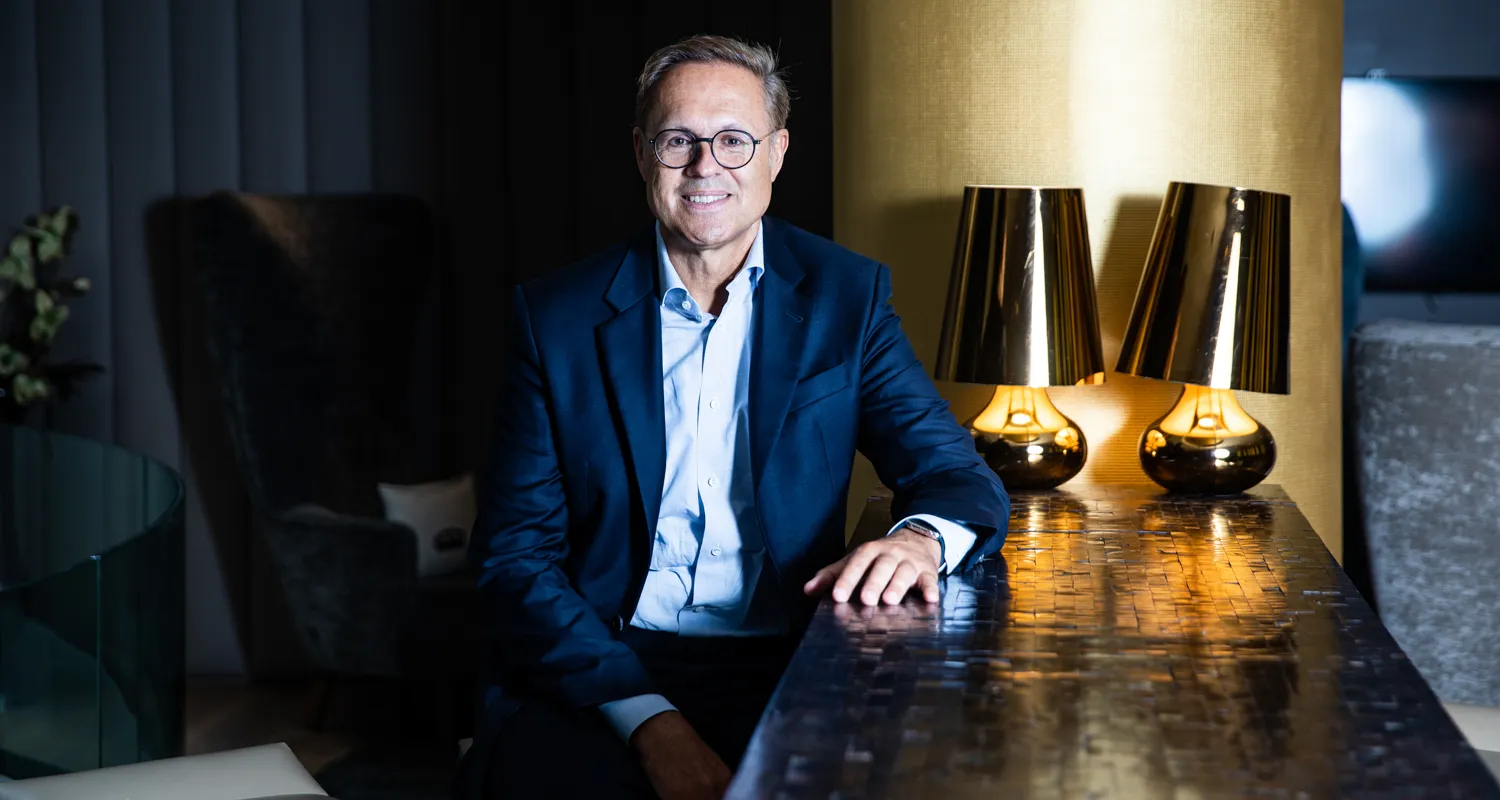As a 21-year-old, I had my personal WOW moment during my undergraduate studies at the University of Münster - an evening lecture about assessment centres.
I found this lecture much more exciting than my business studies so far, literally overnight my interest in personnel management was awakened.
From that day on, I red books about "human resource management" parallel to my studies in business administration and I realized more and more that I was fascinated by this topic and that it was easy for me to indulge.
After my basic studies, I changed to the University of Mannheim to study human resources management, ergonomics, organizational sciences and labour law.
My particular passion quickly became clear - recruitment and selection.
During the increasingly rare weekends at my parents' home, I helped out in my father's executive search firm from time to time, creating index cards of candidates.
I also wrote my diploma thesis on executive search and the decision-making principles for assigning search firms - at that time still very abstract and theoretical.
After 9 months of MBA studies in the USA, my professional life started in the management department of Deutsche Lufthansa.
This time shaped me a lot, because Lufthansa was just at the beginning of its far-reaching transformation from a state-owned company to an increasingly privately managed group.
My career start was characterized by a lot of project work and change management initiatives, because at that time a new corporate and leadership culture was established at Lufthansa and hierarchies were dismantled. I also gained insights into trainee programs, assessment centres and management development.
It was a great time with a lot of learnings - until the executive search industry called.
Due to a major assignment, I joined my father's executive search firm (at that time still Dr. Friedrichs-Unternehmensberatung, based in Ratingen) earlier than originally planned.
So I started in the executive search world on November 9th 1992.
At that time, we had been mandated by the federal state of Saxony to conduct management audits in the so-called "2nd labor market" of Saxony interviewing executives in Saxon employment companies (stated financed) in order to evaluate their potential.
Throughout this project, I got to know the major cities of Saxony for the first time – guided by our head of the Berlin office back then, Reinhard Krohn. Together we conducted countless interviews with executives in employment companies in the gigantic facilities of the former GDR (German Democratic Republic) state-owned companies.
At that time, only a tenth of the former employees were still "employed" in the employment companies while the huge, sprawling facilities were totally deserted and mostly also in a very poor infrastructural shape. A rather depressing scenery.
For me as a 27-year-old "Wessi" (Western German), it was a very grounding experience to have intensive interviews with former executives from the former GDR. Especially since I mostly came to the conclusion that a successful career in the Western German job market was very unlikely for them.
Many of these ex-GDR executives had already reached the last quarter of their working lives and they were mourning “the good old GDR days”. They had (understandably) focused their entire careers on the communist system of the time and were politically aligned as well.
After the fall of the communism in Eastern Germany, such executive careers were inevitably over and these people were heavily frustrated, sometimes even broken.
The results of the management audits were therefore largely sobering for me, as the majority of the executives were unable to perform in the Western German labour market, so they inevitably had to accept remaining permanently dependent on social transfers from the German state.
There were nevertheless promising talents, too. Once identified, they were given systematic support to prepare them for the transition to the unified German employment market through, based on trainings in business administration, leadership & management, English and so on.
After about half a year, this large project was successfully completed and I switched to classic executive search in spring 1993.
At that time, computers and software were finally making their way into companies. The IT industry, which was still quite young, was booming heavily and looking for executives and well-paid sales professionals.
In the beginning, I worked for international software and computer companies searching managing directors, sales managers and also key account managers. I also worked regularly for emerging international food companies at that time, looking for key people in marketing, sales, finance and HR.
As one of the youngest German search consultants at the time, I managed to establish myself quite quickly in these dynamic industries, which were also rather young and not yet mature ;-)
In the following months I got trained on the job in executive search and HR consulting preparing myself for taking over my father's business in the following 5 - 7 years.
That was the plan. But it turned out quite differently.
At the beginning of 1994, my world was completely turned upside down - my father, who was also my mentor and my employer, died totally unexpectedly. From one second to the other. Without any warnings or signs.
Virtually overnight, I was no longer a junior boss in the slipstream of my father and my mentor, and I was no longer in a protected space. Instead, I had to become managing director and my father's successor right off the bat and without proper preparation.
I suddenly had responsibility for employees and I had to deliver sales and results.
This was clearly the most difficult challenge in my life, professionally and even more personally.
The months following my father's death were marked by countless conversations with long-standing clients, and the content of the conversations was always the same.
On the one hand, our clients showed a lot of empathy for my father's death and they wanted to know more about the circumstances of his death.
At the same time, our clients were very sceptical as to whether I could be successful as an executive search consultant at the age of 28 - with limited professional and life experience.
I myself was also not at all sure whether I wanted to stay in executive search or whether I would rather prefer to pursue a classic HR career in a company.
Therefore in 1994, 1995 and in 1996, I was more or less an executive search consultant on probation. At the end of each year, I took stock of my performance as an executive search entrepreneur and only after that self-assessment I made the conscious decision to "add on" another year.
These 3 years were challenging, with ups and downs, but on balance this time was successful and fun, too.
Only at one point of time I briefly stumbled in my decision making process - when I was offered the mid-term perspective of becoming head of HR management in a large corporation.
That was a very attractive offer that would have given me security and a more regular job, but my passion for executive search was already stronger at that time.
Therefore, at the end of 1996, I made a permanent commitment to my career in executive search and I renamed the company Friedrichs & Partner Unternehmensberatung as of January 1st in 1997.
We took off with our new headquarters in Düsseldorf and our 2 branch offices, and prosperous years followed - with rapidly growing clients from the technology and e-commerce industry. At the same time, we as well steadily gained new clients from traditional industries like automotive, construction, steel, chemical, consumer goods and high-tech industries.
1997 until 2000 were successful years with a lot of tailwind.
In keeping with this upward phase, I received an inquiry from an executive search network called IRC at the end of 2000.
Specifically, I was offered that Friedrichs & Partner could become the exclusive German IRC member.
At that time IRC had members in Finland, Sweden, Belgium, France, Italy, UK, Norway and Russia and was still kind of an immature network, a sleeping giant you might say.
Since Friedrichs & Partner was already working for numerous international clients at the turn of the millennium, the offer of IRC membership immediately sounded interesting for us.
After intensive talks and exploring in Germany, Belgium and England, the decision was quickly clear - we accepted the offer and became the German IRC member! A decision that still has positive influence on us today.
Shortly after the turn of the millennium headwind came.
In 2000/2001, the first unexpected setback occurred - the burst of the dotcom bubble and the resulting collapse of the stock markets which caused us to lose important clients due to bankruptcy and downsizing.
This difficult economic situation was exacerbated in September 2001 by the attack on the World Trade Center in the USA.
Our tailwind had stopped abruptly - and for a long time.
From fall 2001 until spring 2006, we experienced very challenging years in a difficult economic environment and a very negative business climate.
Overcoming this difficult period was only possible because of the unparalleled commitment of the entire Friedrichs & Partner team. Together we overcame this challenge and laid the foundation for future successes.
During this challenging time I discovered - as a positive balance to the national challenges - my passion for international cooperation and so I was accepted into the Executive Board of IRC in 2003. From 2005 to 2009 I was trusted to take over the newly created role as "President" of IRC.
This was an honour and at the same time a challenge, as Friedrichs & Partner-Unternehmens-beratung was still in difficult waters during these years.
Managing the very international, multicultural, diverse and also heterogeneous IRC organization was very time-consuming and intensive, but it was also exciting and brought with it many intercultural experiences.
For me, that was a very enriching and also instructive professional phase, in which I found (business) friends for life and in which we were able to celebrate many great successes as a team.
In autumn 2009 my time on the board of IRC came to a natural end. Until now my successors did a really great job and brought the network to the next level.
Today, the network has grown up and, under its new name Kestria (www.kestria.com), is considered the world's largest recruitment network. And it has still kept its very special culture of friendship and comradery.
As of November 2009, I was able to devote my full attention to my own company again - just in time for the peak of the financial crisis.
2009 was an experience of a special kind.
In the first 10 months of 2009, our business collapsed dramatically and the phones were completely dead - a very bad sign in the executive search business. At that time, our clients had to cope with short-term drops in turnover of up to 80 %, so that many ongoing mandates were stopped and no new ones were awarded.
We were suddenly in the middle of a crisis and no one could foresee the end because it was not a classic cyclical economic downturn.
All of a sudden, in the final months of 2009, the pendulum swung back in the opposite direction completely unexpectedly and there was a significant upturn in business - for our clients and also for us.
Looking back, the financial crisis was a remarkable trend reversal in the labour market. From my perspective, it was the last time that many companies acted purely short-term oriented cutting their core workforce drastically in an economic crisis.
From 2010 onwards, we experienced sustainably successful years again. A nearly 10-year upward cycle without any interruptions - an absolute novelty in our Friedrichs & Partner history.
Due to the continuous strong demand for executives and highly qualified experts, the market increasingly developed into a candidate market.
It was therefore quite obvious that the labour market would soon face new challenges.
But who would have thought of a pandemic back then....?
The COVID19 pandemic in spring of 2020 was something unprecedented, and there were no known solutions for such a global health crisis.
The imposed global lockdown fundamentally changed the long-established work processes and supply chain processes in a very short time. Inevitably Executive Search got affected, too.
Introducing new digital processes were the only option in order to maintain daily business. Face-to-face meetings and personal interviews were simply impossible because clients and candidates only worked in their home offices in spring 2020.
Virtually overnight, the traditional face-to-face services of executive search became a largely digital consulting service - based on virtual meetings and virtual communication.
Teams, Zoom, Webex, Google Hangouts and others - the tools for the digital workday fortunately already existed at the beginning of 2020. They "only" needed to be introduced or used consistently.
Our daily consulting routines also changed completely with the onset of the pandemic.
Since Lockdown 2020, we have been conducting exclusively virtual interviews and we are supporting and facilitating our clients' interviews virtually as well.
The same applies to the awarding of search assignments and briefings by our clients; this communication is now as well mostly virtual.
Contrary to earlier beliefs, digital interviews work extremely well. They offer unimagined decision-making quality and have enabled all parties involved to be much more flexible in terms of space and time than in the past.
Gone are the days of endless, time-consuming coordination of time and place of interviews (initial interviews as well as follow-up interviews) and at the same time remote stakeholders can now be easily integrated into the decision-making process.
However, regardless of these useful and time-saving virtual process step we still advise our customers to practice a hybrid interviewing process, with mandatory final interviews in-person on site.
Only that way the mutual personal “chemistry” can be assessed and candidates receive very important personal impressions - of the potential workplace, the potential employer including colleagues and also the atmosphere and culture on site.
Based on the proven success of the hybrid consulting model, we are convinced that the executive search process will remain hybrid in the long term and that the initial dialog phases will be conducted virtually on a permanent basis. With high quality and validity.
And that brings me to the current status quo.
Living in the world of “new work” now, I would like take look at the future of executive search.
The global situation is currently very confusing and, above all, complex. An aggressive war in the middle of Europe, the ongoing COVID19 pandemic, the reorganization of the global supply chain, galloping inflation and also the rapidly required transformation of energy sources and many other things are keeping the global markets on their toes.
Beyond this framework of international challenges the demographic development is of utmost importance for the German labour market.
I personally believe that demographic trend - the "aging of society" - will be the longest lasting challenge and threat to the German economy and, of course, to the labour market itself.
When I ask around in companies in various industries today, an increasing number of key roles cannot be filled by the companies themselves.
Executive Search consultants probably don't need to worry about sufficient business in the coming years.
But filling the positions is becoming increasingly difficult and the time need to fill the vacancies is getting longer. Already today, we are putting in multiple time and effort to fill positions (based on a 10 year comparison) and we have to approach much larger number of potential candidates than in the past.
In the coming years the baby boomers will retire, leaving a huge gap that cannot be filled. As a result the number of vacancies will continue to grow, and disproportionately so. These open positions in turn critically weaken the competitiveness of companies.
The qualified immigration propagated and planned by government has so far not worked out, the Blue Card has not fulfilled expectations. Companies can therefore expect only very limited support from the government.
Employing key people beyond their retirement age would be a pragmatic option which a significant number of baby boomers would probably accept - provided that the working time models are adapted to their needs and are as flexible as possible.
The big unknown in this equation are the Generations Y and Z, who are known to prefer to work less and who don't want to be consumed by work.
At the same time, most companies will have at least the same workload as they have today, as a matter of fact this work will probably have to be distributed on fewer shoulders in the future.
Automation and artificial intelligence (AI) can take over some of this work in the future, but there will remain tasks that cannot be done by robots and AI.
Will Generation Y and Generation Z employees then be ready and are they willing to step into the breach for their employers to cover peak workloads for an unspecified period of time?
So far, that seems rather doubtful.
However, the current drastic rise in inflation will inevitably lead to significantly lower net incomes and could thus force younger employees to shift up a gear professionally, at least in the mid-term.
The willingness to go the extra mile in the job could then increase significantly and mobilize additional resources for the work to be done.
In any case, the war for talent will continue and most likely intensify even more.
Executive Search will therefore remain a sought-after service in the future, and we will gladly accept the future challenges.
Finally, my very special and heartfelt thank you goes to the entire Friedrichs & Partner team for their contribution over the past 30 years!
My journey with its beautiful and also exciting stations would not have been possible without the continuous dedicated support, the high loyalty and the unparalleled passion of my colleagues.
Only as a true team we were able celebrate many successes with Friedrichs & Partner / Kestria Germany.
And the mutual journey still continues....


